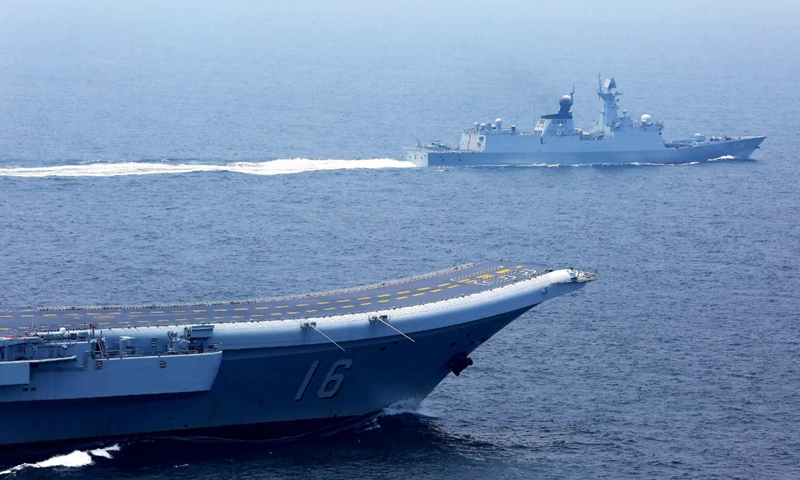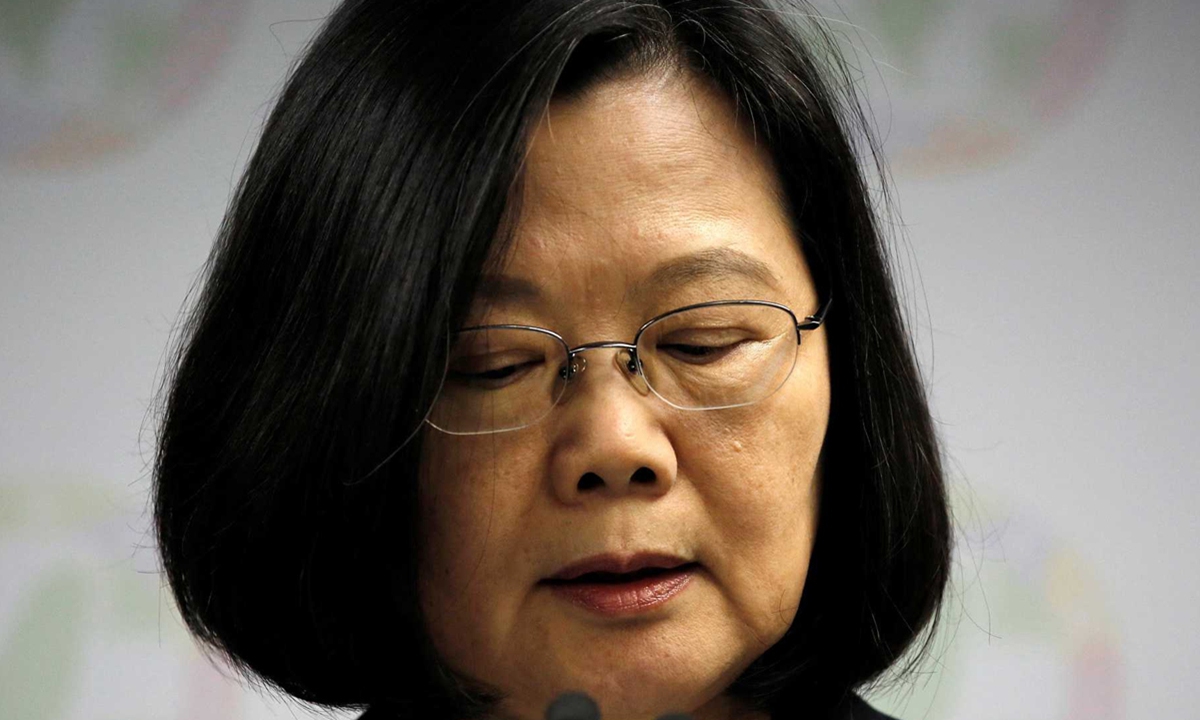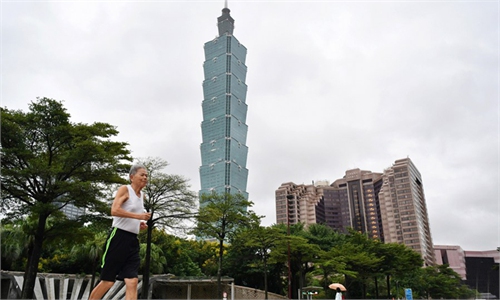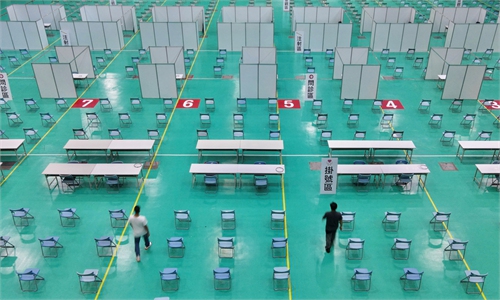China lodges firm representations with Japan over its security dialogue with DPP of Taiwan, whose illusion into external support ‘will cut own throat’

File photo:CGTN
China on Friday expressed strong opposition to the first-ever security talks between the ruling parties of Japan and Taiwan island, and has lodged firm representations with Japan. Although the virtual dialogue was viewed as warming ties between Japan and the island, mainland experts warned that such attempts of self-comfort and catering to the US' Indo-Pacific strategy to contain the mainland may provoke a strong backlash from Beijing.
Initiated by Japan's ruling Liberal Democratic Party (LDP), the "2+2" dialogue involved two "legislators" from Taiwan's secessionist Democratic Progressive Party (DPP) and Masahisa Sato, LDP's director of its foreign affairs sector, and national defense division director Taku Otsuka, media reported.
Japanese politicians accused the Chinese mainland of "unilaterally changing the regional status quo," which not only "affects the security of the Taiwan Straits, but also Japan's security," Taiwan media reported.
Tsai Shih-ying, a DPP representative in the dialogue, said that military exchanges were discussed, like Coast Guard cooperation, but more details cannot be disclosed due to its sensitivity, Japan Times reported.
Taiwan is an inalienable part of China's territory, and China has lodged solemn representations with Japan, Chinese Foreign Ministry Spokesperson Zhao Lijian said on Friday, noting that China firmly opposes any form of official exchange between China's diplomatic countries and the island of Taiwan.
"The Taiwan question bears on the political foundation of China-Japan relations. Japan bears historical responsibility to the Chinese people on the Taiwan question and needs to be cautious in its words and actions. We solemnly urge Japan to stop interfering in China's internal affairs and not send wrong signals to Taiwan secessionists," Zhao said.
A spokesperson for the Chinese Embassy in Japan said Friday that China opposes any form of official exchange between countries with diplomatic ties with Taiwan, adding that no one should underestimate the Chinese people's determination and ability to defend national sovereignty and territorial integrity.
China urged Japan to abide by the spirit of the four political documents between China and Japan, fulfill its promises on the Taiwan question, stop harming China's sovereignty, security and development interests in any form, and avoid further damage to bilateral relations, the spokesperson said.
Besides the de facto official dialogue under the cover of a party exchange, in 2021, Suga government's ties with the DPP became more blatant.
When Japanese Prime Minister Yoshihide Suga visited the US in April, he raised in a joint statement with US President Joe Biden the "importance of peace and stability in the Taiwan Straits." In its annual defense white paper released in July, Japan said that stability in the Taiwan Straits is "more important than ever," and is threatened by "increasing military pressure" from the Chinese mainland.
Wang Jianmin, a senior cross-Straits expert at Minnan Normal University, East China's Fujian Province, told the Global Times on Friday that China is bound to take tougher countermeasures amid the two sides' scheme.

Tsai Ing-wen Photo:VCG
Unlike the complacent DPP authority, some internet users on the island derided the talks as "idiots from both sides gather to talk nonsense."
Observers warned that the DPP has used too much "spiritual opium" on itself and has the illusion that the US and Japan will support it firmly. The DPP authority does not want to wake up until it cuts its own throat.
There might be some information and technology support, but Japan's direct involvement in the cross-Straits conflict is only the wishful thinking of Taiwan secessionists, Zhang Wensheng, a deputy dean of the Taiwan Research Institute at Xiamen University, told the Global Times
Japan, a defeated country that invaded China in World War II, will suffer massive retaliation from the Chinese mainland once it intervenes in cross-Straits affairs militarily, Zhang said.
"The Chinese mainland would not only charge up for reality, but also for history," Zhang said.
"Japan's focus is on self-preservation as it knows it is incapable of intervening in Taiwan and confront the mainland. Japanese would never put the safety of Taiwan people's lives and property first, even when they colonized the island," Zhang said.
One day before the dialogue, the Chinese People's Liberation Army (PLA) sent two anti-submarine aircraft near the southwestern island, including a Harbin Z-9 anti-submarine warfare helicopter for the first time, Taiwan media said.
Japan's provocation will only promote the mainland's military preparations in the East China Sea and Taiwan Straits…With the mainland's ability to break through the First Island Chain becoming increasingly stronger, Japan and DPP can do almost nothing to block the mainland, Zhang said.
Although Japan and the DPP may reach an agreement on Coast Guard cooperation, experts said the two differ on the Diaoyu Islands.
If Japan continues to make trouble on the Diaoyu Islands, and the mainland continues to press Japan over the issue, the voice of "defending the Diaoyu Islands" in Taiwan island will also rise, which will bring about subtle changes in Japan's relations with the island authorities, Zhang said.



